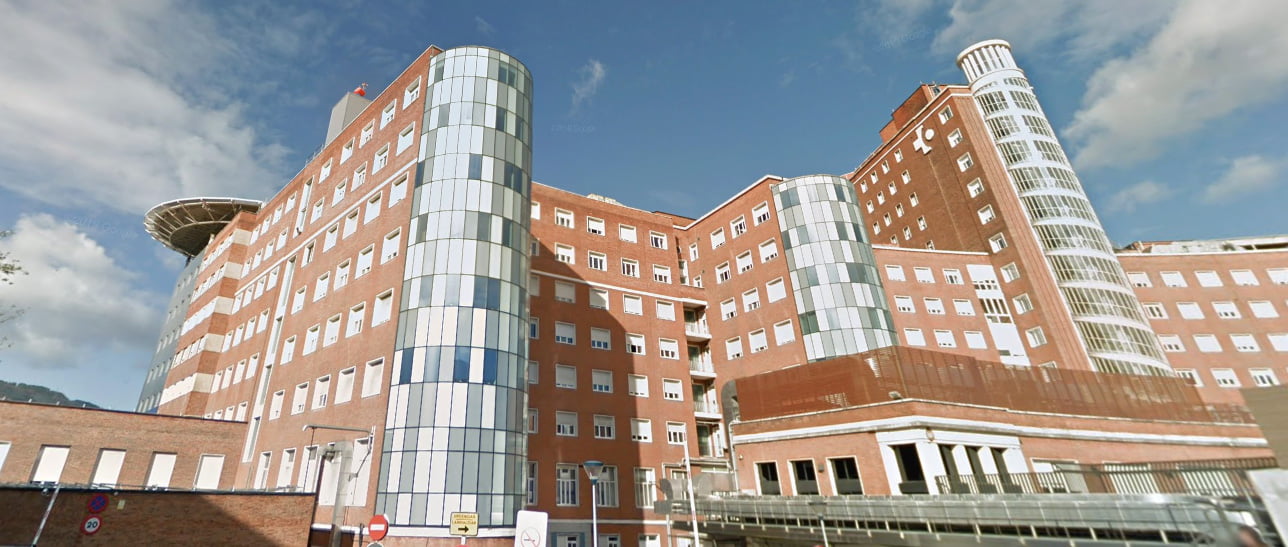The Table of Health born in Hankamotz arrives limp to the final phase
- The Basque Health Pact Board, set up by the Basque Government, will be just over five months old, and the end of the debate process they wanted completed by March is moving away from meeting to meeting. The established methodology, the list of institutions called to the table, those excluded, the contents addressed and those not addressed have aroused a lot of criticism among different actors defending public health.

At the beginning of September, the Basque Government launched the Basque Country Health Pact Board to "analyze the concerns of citizens, professionals and different groups about the evolution of the public health system", in the words of its President, Imanol Pradales. The president foresaw the completion of the three-stage process, led by the Minister of Health, Alberto Martínez, by March, but there are more and more actors who have been critical of the table and voices that say that it will not bring structural change.
The ELA refused to participate in the table from the beginning, the CSR left it in the first phase, and the text of the second section has not yet been endorsed by the LAB or Sumar. In addition, a number of citizens and workers’ associations working in defence of public health were excluded from the table from the outset. The table where Hankamotz was born has reached the final stage of limping, the period of determination of strategies, and it remains to be seen whether he will really have the capacity to take concrete measures that will heal the health system.
The first meeting of the so-called Basque Health Treaty Board was held on September 5, 2024, chaired by President Imanol Pradales and Health Minister Alberto Martínez. The President highlighted the importance of collaboration “to transform the system and ensure primary health care,” explaining that “beyond reducing waiting lists, the system must serve to educate in health, promote health and address prevention.”He also expressed his commitment to continue “consolidating the workforce, improving resources and efficiency and making the necessary investments” in the declarations after the end of that first meeting.
The methodology specifies that, in the absence of adherence to the agreed report at one stage, the actors cannot proceed to the next stage. In addition, "under the pretext of privacy" agents cannot see the contributions of the other participants
The table that’s limping
The process was divided into three phases: first step, agreeing on the diagnosis of the health system, then defining the vision, values and principles, and finally, consolidating strategies. The Minister of Health appointed the Professor of Pharmacology, Javier Meana Martínez, as Secretary General for the revitalization of the table, and at the first meeting he convened a number of health agents: representatives of the official colleges of doctors, nurses, pharmacists, psychologists, dentists, opticians, optometrists, social workers, physiotherapists, biologists and veterinarians; representatives of the Medical Union, SATSE, SAE, political parties, trade unions, CON-MONDRAGON and the University of Deusto.
As much as the guests are left out. The CSR union and the Popular Platform for Public Health (OPAH) were not convened at the first meeting, although they specifically requested to be able to participate at the table. The union representatives were allowed to attend the second meeting, the first of which was said to be full of aphors. The OPAH, on the other hand, were rejected and the secretary allowed them to meet to report on the issues they were working on at the table.
OPAH spokesman José Ignacio Martínez Ortega denounced the exclusion from the table of citizen platforms, associations for public health (Osalde, Complementos y Respiración del Atención Primero) and what could be said on the subject by groups such as women’s groups and pensioners.
ELA, for its part, indicated from the beginning that it would not participate in the discussion process, since they considered it a mere “play” and suspected that there would be no “fundamental change” in it. Thus, they analyzed the diagnosis of the first phase and then confirmed their rejection, noting that according to the diagnosis made, “the possible pact will not imply a fundamental change in the health service”.
In any case, given the methodology of the discussion process itself and the content elaborated and left unelaborated in it, there are more and more voices that say that the table is only a dynamic that does not intend to whitewash the face of the Government and make a real transformation. CSR left the table because it disagreed with the first-phase diagnosis. In fact, the methodology specifies that, in the absence of adherence to the agreed report at one stage, the actors cannot proceed to the next stage. At the time of the closure of the second phase, LAB and Sumar stated that they did not support the text of the principles, but they expressed their willingness to continue in the third phase. The text had not been finalized at the last meeting and the agents would have to indicate in writing whether they agreed or not.
The next meeting will be held on 26 February. By then, participants will have to identify and provide input to the representatives of the working groups of the seventeen strategies proposed by the Department of Health. In any case, during these weeks they will have to report if they agree to the text of the second phase, and it remains to be seen whether this will exclude groups that have been critical, as happened in previous phases.
According to OPAH, the table is nothing more than a fog of smoke to cover the government’s responsibility to represent “social peace” while imposing restrictions and privatization measures
Lack of transparency
The OPAH representative, Martínez, is clear that the methodology implemented by the Health Department by force is “undemocratic and not sufficiently transparent” and that the government “blackmails” groups that do not adhere to their diagnosis. Under the pretext of “privacy”, the agents cannot see the contributions of the other participants, and thus it is not possible to give an “open, diverse and transparent” debate, according to the representative.
The delegate of the CSR at the Hospital de las Cruces, Imanol Rodríguez Adam, shares Martínez’s criticisms that the process is “dark and tricky” and that with the defined methodology the government “skews the democratic path” and jumps to the “lobby system”. Both Rodríguez and Martínez criticize the role of Meana, appointed by the Health Department to coordinate the table. “He is the judge of the process and he decides unilaterally which contributions to incorporate and which not,” says Martínez.
Rodríguez, on the other hand, suspects that Meana has a group behind her and denounces that its composition is not known. He also complains that no one knows what representation the other agents, and especially Confebask, have at the table, and that they will, however, determine “the future of our health.”
Not only that, but what they are doing with the health table, “along the same lines as what they have done before with education and what they will soon do with housing,” Rodríguez believes is to “break down” the democratic tables and “establish the lobby system”: “In this way, political decisions are not made by politicians, but by agents with interests. There have always been strong companies behind the politicians determining the way, but now they are sitting at the table and their proposals will go ahead, something that cannot be accepted.”
In CSR, they are afraid of repeating the same thing that happened at the health table during education: “They assembled a pact, all the agents gave their support with enthusiasm, and in the end the law they enacted goes against public education.” Once the treaty is signed, the delegate considers it “impossible” to reverse it: “The law is made, it has been protected by the agents involved and they also have responsibility.” Thus, and in view of the fact that what will be agreed with the treaty will not be “in the interests of the citizens”, they decided not to support the union.
Rebeka Ubera Aranzeta, representative of EH Bila, points out that the coalition believes that a different methodology should be used to generate trust in such a work space. Although they are critical of the process, they consider it important to participate in the table as representatives of the population and believe that otherwise some debates would not take place, such as the public-private issue.
.jpg)
Critical with the diagnosis
Despite the methodology, Rodríguez and Martínez consider that the “real problem” is the diagnosis agreed by the table, and Ubera believes that some controversies are to be avoided. CSR and OPAH believe that the process will not bring anything good to public health, but EH Bila hopes that they will have the opportunity to address some of the areas they want in the strategy phase. “The diagnosis included elements hitherto not accepted by the government, such as those never recognized or received by the government, the need for radical change in personnel policy or the increase in privatization,” Ubera said.
The representative of EH Encuentro is aware that agreeing on measures to reverse the situation of the health system will be “difficult” and that, with a table that brings together so many actors, it will be necessary to seek “an agreement of minimums”, but he points out that the coalition will go to seek precision in the strategies “to provide a real transformation to guarantee the right to health of the population”.
CSR and OPAH are more critical of the content they are working on at the table. In their opinion, the diagnosis agreed in the first phase does not address the main problems of Osakidetza and does not detect any self-criticism on the part of the party (PNV) that has managed the institution since its creation. Martínez believes that the diagnosis does not solve the problems that Osakidetza is currently facing, since it does not carry out a comprehensive study of the health system and because so far the new Health Department has not broken with the reduction policy of the previous group and has continued on the “path of privatization”.
It mentions that the PNV does not understand the health system as a public structure with all the necessary resources, but as a collaboration between the public and private systems, and that the diagnosis does not mention this model or determine an analysis of its consequences.
On the other hand, Rodríguez warns that the diagnosis does not call into question the model of Integrated Health Organizations (IHOs) and the “hospital centrism” that results from it. The representatives of the three actors agree that Osakidetza is currently focused on disease management and should focus its efforts on prevention and health promotion. To do this, they recall the need to strengthen Primary Care because it “guarantees the equity of the health system, offers better results and reduces health expenditure”, in the words of Martínez.
Privatization is another of the most obvious shortcomings of the diagnosis. In the view of the CSR delegate, the issue has not been clearly addressed: “The only thing they say about the ambulance system is that it will have to be studied in the future how to manage it, but that doesn’t make it clear if they will support further privatization or not.” Martínez also believes that the Bureau has dealt “superficially” with the problem of privatization, which involves turning health into a business to the detriment of the rights of citizens and workers and the quality of service.
In addition, the union and the platform denounce that the diagnosis does not mention the reasons for the lack of personnel - such as precarious working conditions and high temporality - and that it places the root of the problem outside the Health Department, excluding all responsibilities. Moreover, only the lack of Primary Care doctors is mentioned in the diagnosis and, in Rodríguez’s words, there is a gap in “all professional categories”: “In Osakidetza we are always at or below the minimums.”
The issue of gender mainstreaming and gender mainstreaming has also been excluded from the debate. According to the CSR, nothing has been mentioned in the analysis about the support of the service, although it is essential in guaranteeing the rights of the users. The OPAH also denounces the existence of deficiencies from a gender perspective: “It is necessary to work on a gender perspective in Primary Care, but this requires resources that we currently do not have.”
José Ignacio Martínez is clear that one of the fundamental causes of the deterioration of public health is “permanent underfinancing” and that with the current budget of Osakidetza it is impossible to “address the structural changes that we need”. It denounces that since last year the budget has increased by only 0.35% and that health spending in the Basque Country is very low compared to the EU average, taking into account GDP. Thus, the OPAH spokesperson believes that the diagnosis does not “identify structural problems” and does not have the budget to deal with them.
Rebeka Ubera has the feeling of wanting to run and rush the road, but so far she has seen "many headlines and few structural measures" from the government.
How will the table reach its destination?
CSR left the table in the first phase because it was clear that what will come out of it will not be “good for public health.” According to Imanol Rodríguez, those who remain are responsible because they are supporting the “image whitening of the Health Department”. According to OPAH, the table is nothing more than a fog of smoke to cover the government’s responsibility to represent “social peace” while imposing restrictions and privatization measures.
Rebeka Ubera mentions that the debate process was taken from the beginning as a sign of an effort to neutralize the opposition work of EH Bila in Parliament. The representative also has the feeling of wanting to run and hurry the way, but so far he has seen “many headlines and few structural measures” by the government. He was in favour of taking the necessary time to complete the process successfully, and called on the Government to address its responsibilities in the meantime.
The CSR has shown itself to be tougher and is beginning to imagine how to deal with the consequences of the potential treaty. “We have to start thinking that what will come out of this pact will have to be faced together and we will have to fill the streets,” explained the delegate.
The members of the Citizen Platform for Public Health are also “skeptical” of the possible pact and do not see the real will of the Basque Government to reject the neoliberal policies of the previous government and implement fundamental changes. On February 1, the three capitals of the Basque Country held mass demonstrations in defense of the public health system, confirming that they will continue doing street work until the situation is healed. José Ignacio Martínez believes that the key to change is citizen pressure.
At the first meeting, although President Pradales highlighted the need to “transform the system”, it remains to be seen what changes the Health Pact Board will bring, in view of how it will arrive at the final phase, the phase of defining strategies. The development of strategies has begun before all the institutions are aware of their compliance with the Report of Principles, and the final stage will clarify the degree of agreement and precision with which those who continue in the process are able to achieve in the proposals for the healing of the health system. Whether it will lead to the promised profound transformations or, on the contrary, whether it will be an initiative that awakens hope and changes little, designed to justify the government, is a debate in which the process will have a longer thread than itself.
Pazienteek Donostiara joan behar dute arreta jasotzeko. Osasun Bidasoa plataforma herritarrak salatu du itxierak “are gehiago hondatuko” duela eskualdeko osasun publikoa.
Barakaldoko ospitaleko larrialdi zerbitzuan sufritzen ari diren "saturazioa larria" dela ohartarazi du sindikatuak. Pazienteak korridoreetan artatu dituztela eta krisia kudeatzeko "behar adina langile" ez dagoela salatu du. Errealitate horren aurrean... [+]
Alberto Martinez Eusko Jaurlaritzako Osasun sailburuak argi dio: ez ditu mediku euskaldunak aurkitzen, eta euskarazko osasun arreta ezin da bermatu mediku egoiliar (formazioan dauden espezialista) gehienak kanpotarrak direlako. Mediku euskaldunak bilatzea perretxikotan joatea... [+]
Bizilagunek "egia eta politika" merezi dutela adierazi dute, oraindik konponbiderik bilatu ez zaizkien arazo ugari edukitzen jarraitzen baitute. Ikasketei eta osasun arretari loturiko arazoak nabarmendu dituzte.
These were my last words when we left, held hand in your deep breathing sleep. Your heart stayed forever without a special, simple, dignified pain. As you want and demand. How we want and respect.
Already a month before the arrival of winter, the last days of the longest night,... [+]











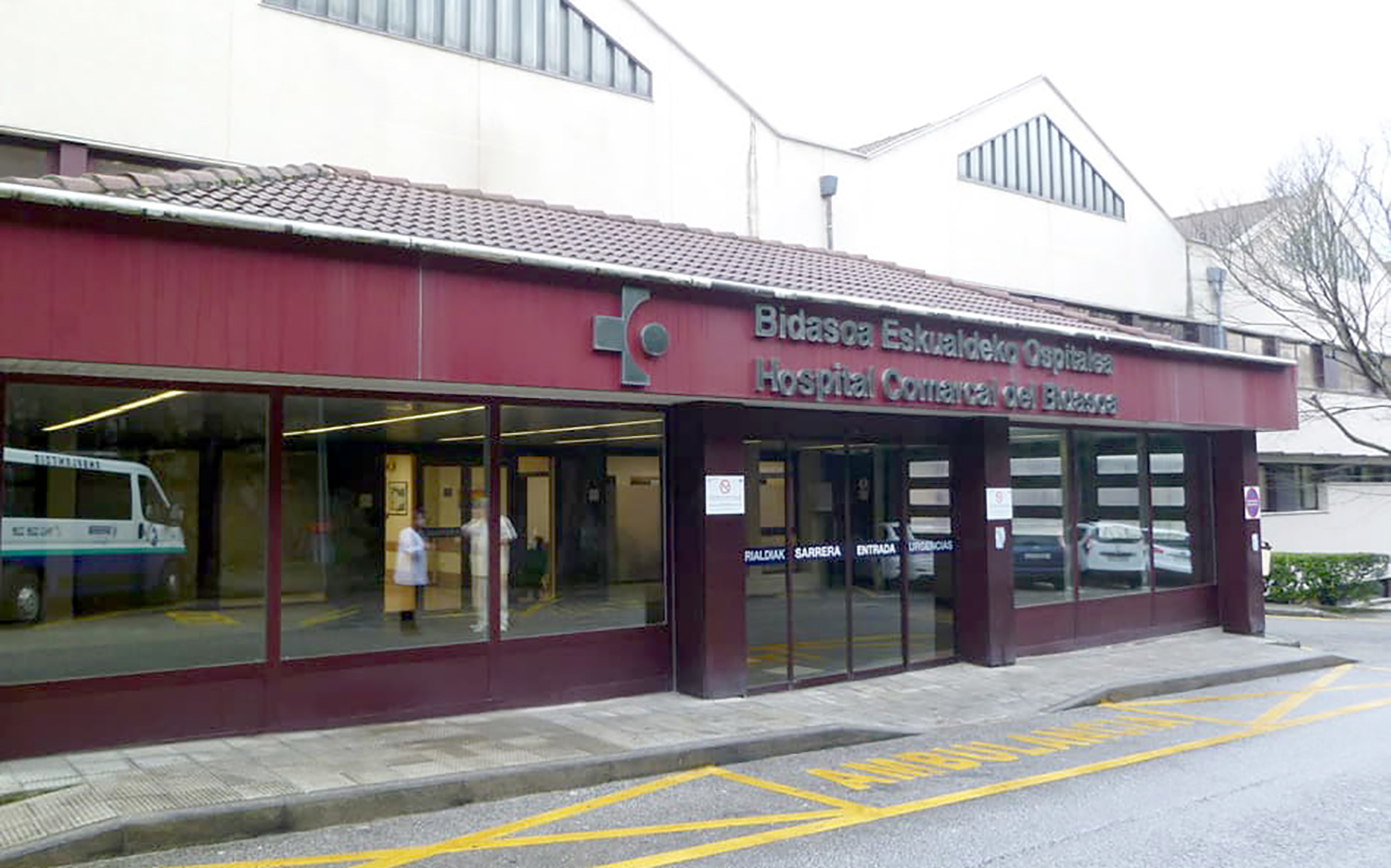
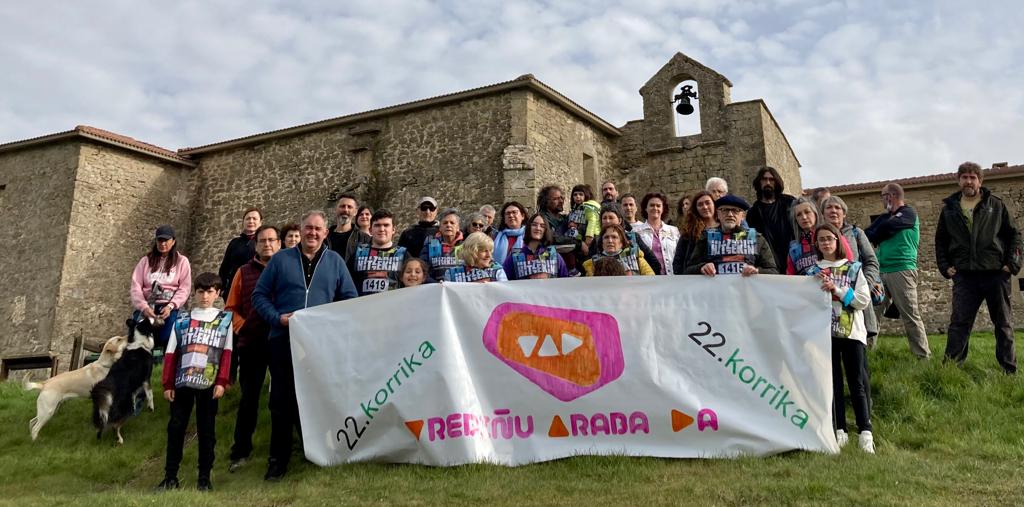
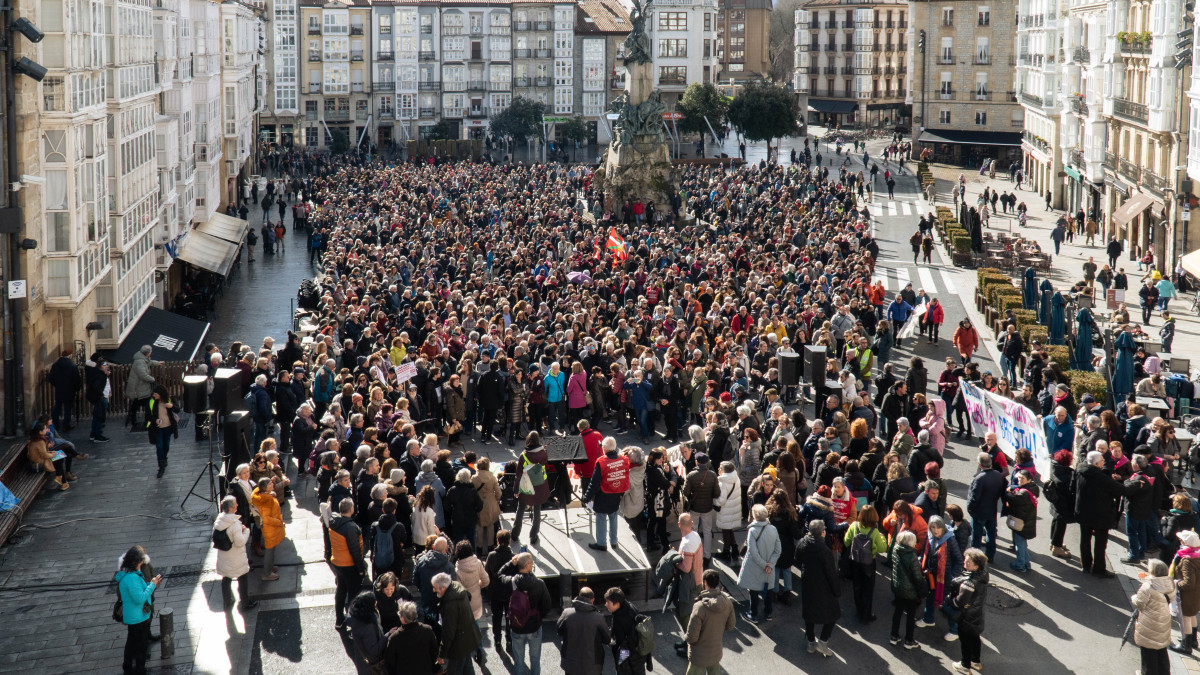
.jpg)
.jpg)
.jpg)
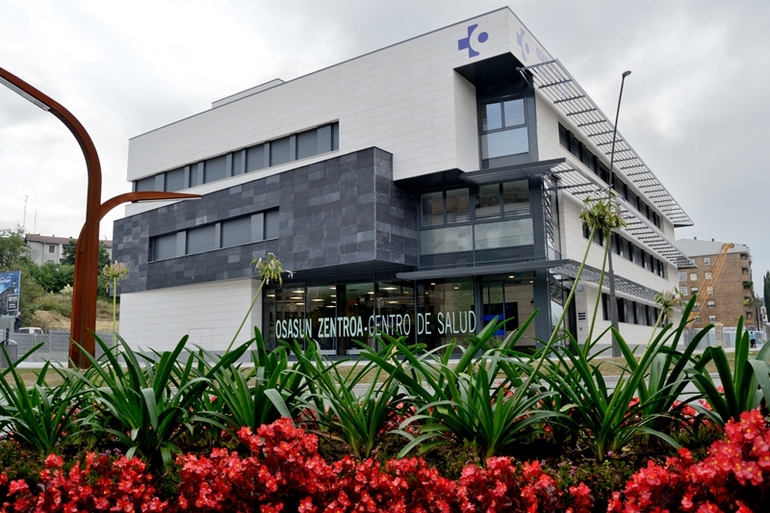
.jpg)

